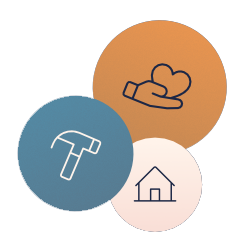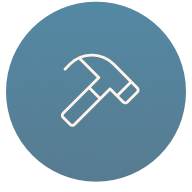Surfacing top issues for rebuilding LA
People affected by the Eaton and Palisades fires shared what is most important to them. What we heard shaped the design for community deliberations.
What we did
The agenda setting phase for this engagement began in March and lasted through May 16, 2025. Participants opted in and shared thoughts about recovery from the Los Angeles Wildfires. The information gathered will guide how public officials move forward.
What we learned will also guide the next phase of this engagement: deliberation.
The ideas and insights we have collected so far are invaluable.
What we heard
We asked participants to rate the importance of 10 disaster-related topics. Participants used a 5-point scale to let us know how important it is to discuss each item further. The table below shows the percentage of people who said a topic is “very important” or “essential.”
Select a topic to explore comments and see insights about the conversations.
How we’re responding to community needs
Residents shared what they need most to recover and rebuild their communities. We found that some issues need more discussion. However, we also found issues we can act on now.
Below is a summary of how we are responding to what residents said they need most.
Stay tuned for updates on our progress.
Up next: Discussing complex issues
While we are ready to take action on the priorities above, there is still work to do for some other issues. We will invite California residents to help us with this.
Residents shared ideas about complex community challenges that need deeper exploration. These issues don't have simple solutions. They may involve difficult trade-offs that communities need to work through together.
The next phase, deliberation, is where we will tackle these more complex topics. Deliberation will allow community members to:
- Align and find the right direction to move ahead
- Work through different opinions in a respectful way
- Weigh the benefits and drawbacks of different proposals
Our ultimate goal is to create action plans that community members can support and feel a part of.
“Homeowners should be able to use natural gas. It's more reliable and affordable than all electric mandates.”
“All housing should be built with no gas. We are supposed to be all electric in Los Angeles by 2035...so why invest in repairing gas infrastructure that will be obsolete/stranded assets soon?”
“Homeowners should be able to use natural gas. It's more reliable and affordable than all electric mandates.”
“All housing should be built with no gas. We are supposed to be all electric in Los Angeles by 2035...so why invest in repairing gas infrastructure that will be obsolete/stranded assets soon?”
How we did the analysis
We used the Claude 3.5 Sonnet generative AI model to help find themes and trends in the comments. We prompted the model with questions to help us understand what people thought. This was an efficient way to see how people agreed or disagreed on important topics.
We tested different ways to write the prompts. We focused on the answers that came up often, regardless of how we asked the questions.
Sample prompts
“I would like you to analyze a set of qualitative survey responses using extended thinking.”
“Start by doing an initial exploration of the data: First, read through the entire dataset without categorizing or labeling. Note your immediate observations and impressions about what stands out to you. Identify recurring words, phrases, and sentiments that appear across multiple responses. Share what surprised you or caught your attention in this initial review.”






